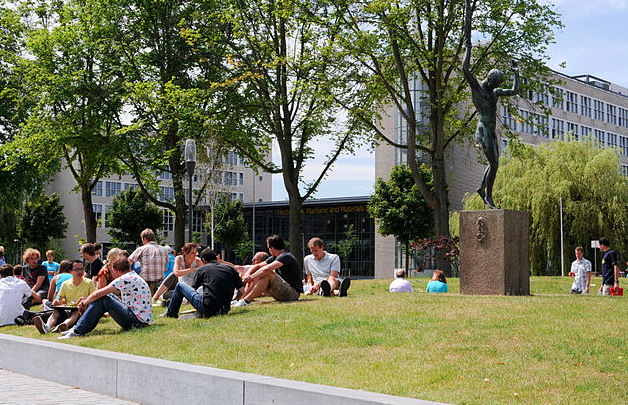Language hottest potato in international student draft law

In total, 210 formal reactions have been made about government’s draft legislation aimed at reducing the number of international students and opinion remains as divided as ever.
Tech companies warn about the likely impact on the Dutch economy, given the shortage of skilled IT staff, and universities, while universities, still grappling with overfull lecture theatres, are angry about too much government involvement.
A majority of MPs wants to go ahead with the plans, which include a fixed number of students for courses that attract many international students, a limit on the number of students from outside the EU and, most controversially, measures to encourage more foreign students to learn Dutch.
The reactions show a great deal of resentment on the part of the universities who are angry about what they feel is an interventionist government which decides which courses can be offered in English, and which imposes Dutch language skills as a requirement.
Some 30% of all bachelor programmes and 80% of master programmes in the Netherlands are conducted in English. There are 122,000 international students currently studying at a Dutch university, three and a half times as many in the 2005 academic year. Around 15% of the student body is not Dutch.
Education minister Robbert Dijkgraaf wants most bachelors to be conducted in Dutch unless there is good reason not to. He has also proposed that at least 140 hours be dedicated to acquiring Dutch language skills in an English language bachelor degree course.
Both universities and businesses reacted negatively to the language requirements, with businesses commenting that students who have to learn Dutch would go elsewhere.
Delft University of Technology said in its reaction that it should be up to the different departments which language they should conduct a particular course. However, a Maastricht university official welcomed the measures saying that compared with other European countries English at Dutch universities held too prominent a sway.
Apart from ideological differences, universities said that the 140 hours language requirement is impractical because of a shortage of Dutch teachers. It will also affect quality as “an added subject means something else will have to go ”, one university official said.
Employers’ organisation VNO-NCW wants the requirement scrapped completely because, it said, it may lead to a “knowledge nexit”.
Thank you for donating to DutchNews.nl.
We could not provide the Dutch News service, and keep it free of charge, without the generous support of our readers. Your donations allow us to report on issues you tell us matter, and provide you with a summary of the most important Dutch news each day.
Make a donation